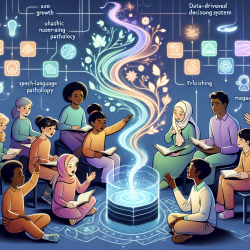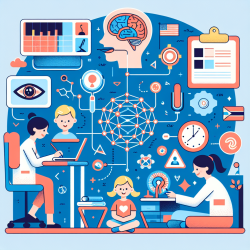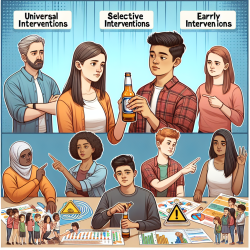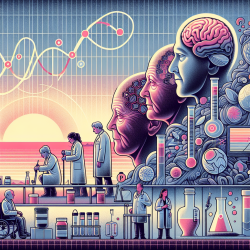The COVID-19 pandemic has significantly impacted youth mental health, with an alarming increase in mental health issues among young people. According to the World Health Organization (WHO), the prevalence of depression and anxiety symptoms surged by 25% during the first year of the pandemic. This pressing issue necessitates innovative approaches to mental health care, and mobile technologies offer promising solutions.In their research, Marciano and Saboor (2023) explore the transformative potential of mobile approaches in youth mental health care. Their findings indicate that mobile applications can revolutionize how we monitor, educate, and support mental health in young people. Here are key takeaways and actionable insights for practitioners:
1. Leveraging Mobile Assessments
Mobile assessments can collect data in two ways: passively and actively.
- Passive Data Collection: This involves using mobile sensors to gather continuous data on behaviors such as physical activity, location, and social interactions. This method, known as digital phenotyping, allows for real-time monitoring without interrupting daily life.
- Active Data Collection: Ecological Momentary Assessments (EMAs) involve self-reports from individuals at various times throughout the day, capturing real-time experiences and behaviors.
By integrating these methods, practitioners can gain a comprehensive understanding of a youth's mental health, allowing for personalized interventions.
2. The Power of Chatbots
Chatbots and conversational agents are emerging as effective tools for mental health support. These AI-driven programs can interact with users, providing immediate responses and interventions. Research indicates that chatbots can help reduce symptoms of depression and anxiety, especially among students and other vulnerable populations.
3. Fostering Well-Being with Positive Psychology
While much of the focus has been on addressing mental health problems, it's equally important to promote well-being. Positive psychology interventions, such as gratitude exercises and mindfulness practices, have shown to improve mental health and overall life satisfaction. Integrating these practices into mobile applications can provide a holistic approach to mental health care.
4. Addressing Ethical and Practical Challenges
Despite the promise of mobile approaches, there are challenges to consider. Data privacy, ethical considerations, and the need for regulatory frameworks are crucial for ensuring the safe and effective use of these technologies. Additionally, the integration of these methods with traditional gold-standard measures is necessary to validate their effectiveness.
Future Steps
To fully realize the potential of mobile approaches in youth mental health care, further research is essential. Prospective longitudinal studies and clinical trials can help establish the efficacy of these methods. Additionally, the development of more sophisticated AI and machine learning algorithms can enhance the predictive power and personalization of interventions.In conclusion, mobile approaches offer a promising avenue for reinventing mental health care for youth. By leveraging digital phenotyping, EMAs, chatbots, and positive psychology, practitioners can provide more accessible, personalized, and effective mental health support. To read the original research paper, please follow this link:
Reinventing mental health care in youth through mobile approaches: Current status and future steps.










